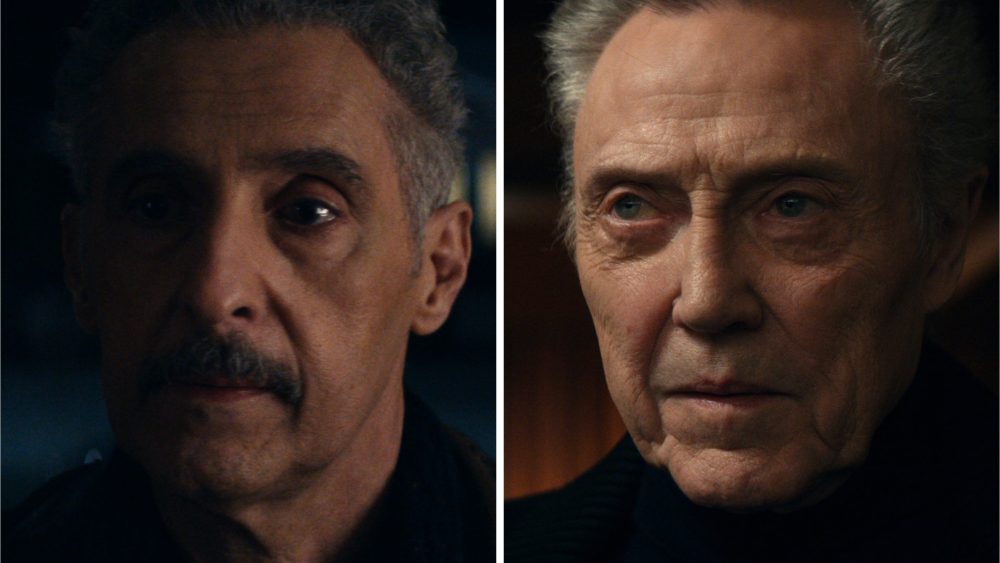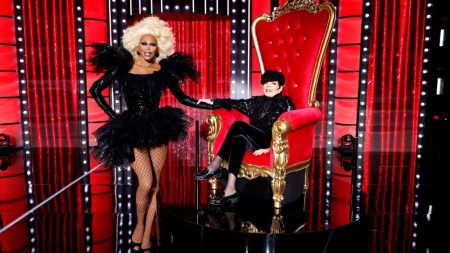SPOILER ALERT: This summary contains spoilers for Season 2, Episode 6 of Severance, now streaming on Apple TV+.
In the unsettling world of Severance, the line between one’s two selves—often referred to as the "innie" (the office psyche) and the "outie" (the outside self)—is perilously thin. This duality is explored through the characters’ struggles to navigate their fragmented lives, where even the subtlest slip can reveal their true identity. For Helly R. (played by Britt Lower), a single insensitive joke about the relationship between Burt (Christopher Walken) and Irving (John Turturro) in Episode 4 was enough to expose her as Helena Eagan, a moment that carried significant consequences. Irving, who had grown close to Helly, was devastated by this revelation. “What you said to me last night, it was cruel,” he tells Helena the next morning, before attempting to drown her. “Helly was never cruel.” This moment underscores the fragility of trust in a world where identities are meticulously controlled and manipulated.
John Turturro, who portrays Irving, dives deeper into his character’s psyche in an interview with Variety. “Someone can be charming and then they’re a monster,” he remarks, highlighting Irving’s ability to track and analyze the world around him. This perceptiveness, Turturro suggests, may stem from a potential military background hinted at in the first season. Irving’s mathematical approach to problem-solving allows him to discern subtle inconsistencies, making him both a compelling and complex figure. This trait is on full display in Season 2, Episode 6, where Irving, after being permanently dismissed from Lumon, gains a rare glimpse into Burt’s outie life as a married man. At an awkward dinner with Burt’s husband, Fields (John Noble), Irving begins to unravel the mystery of who Burt truly is. Turturro explains that Irving’s actions are driven by a mix of curiosity, insecurity, and jealousy—emotions that become even more pronounced as he navigates this tense encounter.
The dinner scene itself is a masterclass in tension, as Irving, Burt, and Fields engage in a strained conversation filled with unspoken truths. Irving’s polite smiles and slow sips of wine mask his growing unease, particularly when Fields casually references Burt’s ominous nickname, "Attila," a nod to the infamous militaristic ruler of the Hun empire. This revelation, combined with the disclosure that Burt has been working at Lumon long before the first severed office opened, leaves Irving grappling with the reality of Burt’s dual identity. Christopher Walken, who plays Burt, describes the scene as a “dinner from hell,” a downward spiral of uncomfortable interactions reminiscent of those dreaded family holidays where polite conversation quickly turns explosive. “Burt is glad to see Irving, but maybe not so glad that his husband is sitting at the same table,” Walken remarks, capturing the layered emotions at play.
Walken further elaborates on his portrayal of Burt’s outie, describing it as a nuanced blend of the familiar and the unknown. “When you see Burt on the outside, he’s still Burt, but he’s burdened with a difference. He’s Burt plus Attila,” Walken explains, emphasizing the weight of Burt’s dual identities. This duality is a recurring theme in Severance, as characters struggle to reconcile their innie and outie selves. For Irving, this struggle is compounded by his recent dismissal from Lumon, a moment that Turturro describes as both challenging and rewarding. “I was very pleased with where they wound up because it was very active,” he says of the storyline, emphasizing the importance of active participation in a group show.
Turturro also reflects on the collaborative process behind the drowning scene in Episode 4, where Irving’s aggression toward Helena shifts to gentleness once she reverts to Helly. He underscores the importance of Britt Lower’s safety during filming, describing the scene as a carefully choreographed dance. “We didn’t have stunt people do it—except in the water sometimes because it was so cold, and then some other stuff in a pool,” he reveals. “We had to be really careful. So we did it like a dance. I said, ‘We’re going to go step, 1, 2, and then I go left, and then you go right.’” This attention to detail not only ensured the scene’s physical safety but also its emotional authenticity, as Irving’s shift in demeanor is both heart-wrenching and believable.
The interview also touches on Turturro’s preparation for emotionally complex scenes, which he likens to listening to music for inspiration. “It’s like music. If music is repetitive, you get bored. So I listen to music all the time, even popular music. It doesn’t have to be classical music,” he explains. For him, the complexity of Joni Mitchell’s Blue serves as a reminder of the emotional depth required for such roles. Irving’s journey, particularly his visit to Burt’s house, is driven by a mix of motivations—curiosity, insecurity, and a longing for human connection. “When you see it in [older] people you go, ‘Wow, they actually still have this. They’re still alive in that way,’” Turturro reflects, highlighting the universal appeal of such stories. The tense dinner scene, which Walken aptly describes as a “threesome” due to the dynamic involving Irving, Burt, and Fields, is a testament to the show’s ability to explore complex relationships and emotions.
As the season progresses, Irving’s actions become increasingly driven by his quest for answers, both about Burt and his own mysterious past. Turturro hints that Irving’s phone call in the season’s final moments is connected to his ongoing hunt for something—or someone—though the exact details remain unclear. “No, not yet, but you will eventually,” he teases. This lingering question, much like the show itself, leaves audiences eager for more, as they continue to unravel the enigmatic world of Severance. The show’s ability to explore themes of identity, trust, and human connection through its intricate characters and tension-filled scenes ensures that it remains a gripping and thought-provoking watch.









